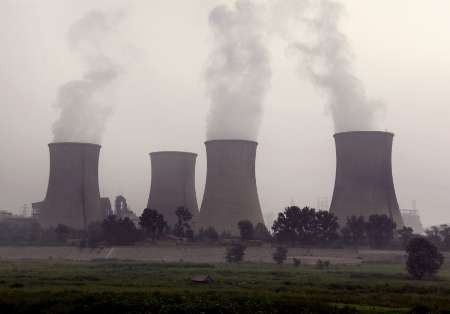Climate Change Making Plants and Animals Smaller: Researchers

Climate Change is causing plants and animals to grow smaller, researchers have found.
In a new study published online Sunday in the journal Nature Climate Change, researchers suggested that plants and animals are shrinking because of warmer temperatures and lack of water.
David Bickford and his colleague Jennifer Sheridan co-authored the paper where they documented the trend for the past two years. They looked at several other studies and found that 38 of 85 animal and plant species are showing a documented reduction in size over decades.
Bickford, an assistant professor at the National University of Singapore's biological sciences department believe this could have an adverse impact on food source in coming years. He said that worst-case scenarios could mean that food crops and animals will shrink enough to have real implications for food security. Less food will be produced on the same amount of land and there could be wholesale biodiversity loss and eventual catastrophic cascades of ecosystem services, Bickford said.
According to Reuters, the Earth's natural resources such as food, water and forests are being depleted at a high rate.
Experts at a climate and health conference in London on Monday said this depletion is causing hunger, conflict, social unrest and species extinction. This increase hunger can cause other problems such as malnutrition. Moreover, a lack of water could lead to hygiene problems. Conflicts over water and land will increase the spread of infectious diseases, the experts said, as reported by Reuters.
There could be 70 million addition deaths in sub-Saharan Africa alone by 2050, Tony McMichael, professor of population health at the Australian National University, said.
An additional 21 million people in China could be at risk from the infectious disease schistosomiasis as global warming increases floods that enable disease-carrying water snails to travel to new areas, Reuters reported.
Climate change will progressively weaken the Earth's life support mechanism, McMichael said according to Reuters. Health is not just collateral damage on the side, the risk is central and represents a denouement of all the other effects of climate change.
Bickford and Sheridan has seen documented shrinkage in spiders, beetles, bees, ants and cicadas. Cotton, corn, strawberries, bay scallops and frogs have also gotten smaller.
They saw that shoots and fruit are 3 to 17 percent smaller for every degree Celsius of warming in a number of plants. Each degree of warming also decreased the body size of marine invertebrates by 0.5 to 4 percent and for fish that shrinkage is 6 to 22 percent.
I don't think that organisms will shrink to the degree that you'll walk outside and see that trees are suddenly half the size that they sued to be, Jennifer Sheridan, a conservation biologist at the University of Alabama and a co-author of the paper noted in the journal issue.
But they do see hat as things get warmer they don't need to grow as large.
Yoram Yom-Tov, a zoologist at Tel Aviv University, has said global warming cannot be exclusively blamed.
Changes in body size are a normal phenomenon, Yom-Tov wrote in an e-mail to Sydney Morning Herald. When conditions are favourable, they increase in size or reproduce at higher rates, and when conditions are deteriorating, they do the opposite. I think that most species will adapt to climate change and survive. No need for alarm.
© Copyright IBTimes 2024. All rights reserved.






















